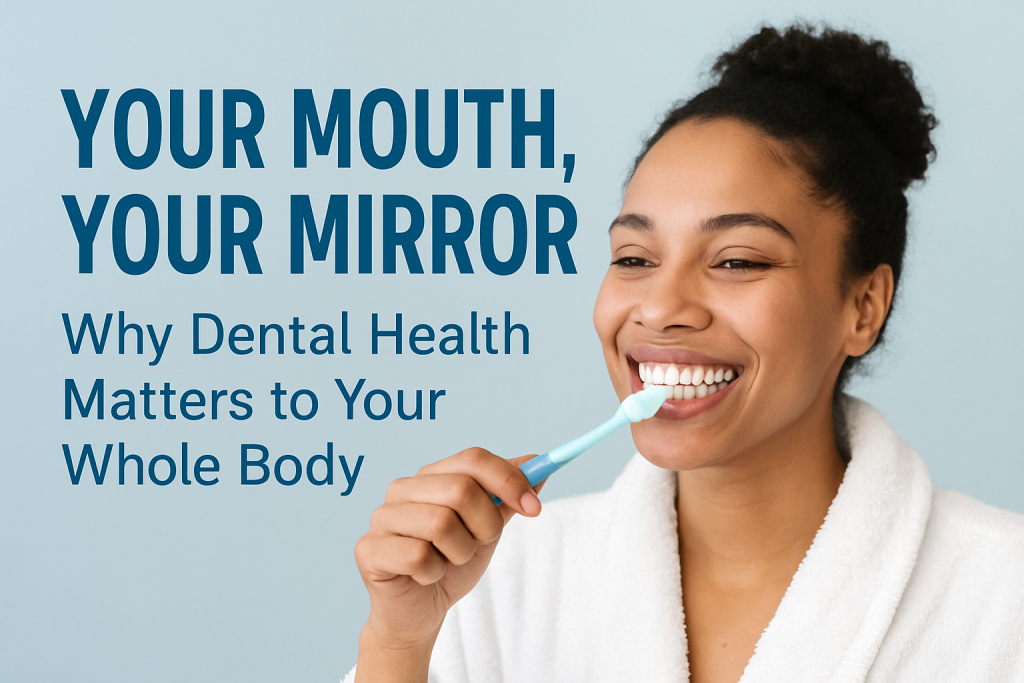By Lakeside Dental Arts, September 2025

When most people think of health, they often separate dental care from the rest of the body. But science continues to prove otherwise: your mouth is not just the gateway to your digestive system—it’s also a key indicator of your total health. From heart disease to diabetes, what’s happening in your mouth often mirrors what’s happening in your body.
The Mouth-Body Connection
The human mouth is full of bacteria—most of it harmless. But when oral hygiene is neglected, harmful bacteria can multiply rapidly. This can lead to gum disease (periodontitis), tooth decay, and even infections that can spread throughout the body.
Research from the American Dental Association and the Mayo Clinic links poor oral health to a range of systemic issues, including:
- Heart disease: Inflammation caused by gum disease may increase the risk of clogged arteries and heart attacks.
- Diabetes: Gum disease can make it harder to control blood sugar—and high blood sugar can worsen oral infections, creating a vicious cycle.
- Pregnancy complications: Studies show a connection between gum disease and premature birth or low birth weight.
- Respiratory illness: Bacteria from the mouth can be inhaled into the lungs, increasing risk of pneumonia—especially in older adults.
More Than Just a Smile
Healthy teeth and gums do more than make for a nice smile—they contribute to confidence, proper nutrition, and clear communication. Tooth pain, missing teeth, or infections can affect your ability to eat a balanced diet or speak comfortably, impacting both physical and emotional well-being.
Additionally, signs of systemic diseases often appear in the mouth first. Conditions like osteoporosis, HIV/AIDS, and certain cancers can manifest as mouth sores, bone loss, or gum issues. Dentists are often the first to spot these red flags, making regular dental visits a key part of preventive care.
What You Can Do
The good news? Many oral health problems are preventable.
- Brush and floss daily: Remove plaque and prevent tartar buildup.
- See your dentist regularly: At least twice a year for exams and cleanings.
- Don’t ignore bleeding gums: It could be a sign of early gum disease.
- Eat a balanced diet: Limit sugary snacks and drinks that feed bacteria.
- Quit smoking: Tobacco use is a major contributor to gum disease and oral cancer.
Final Thoughts
Your mouth is not separate from your body—it’s an essential part of it. Good dental habits don’t just protect your teeth; they help protect your heart, your lungs, and your overall health. Think of every dental visit as an investment in your entire well-being.
 Join Our Team!
Join Our Team!
